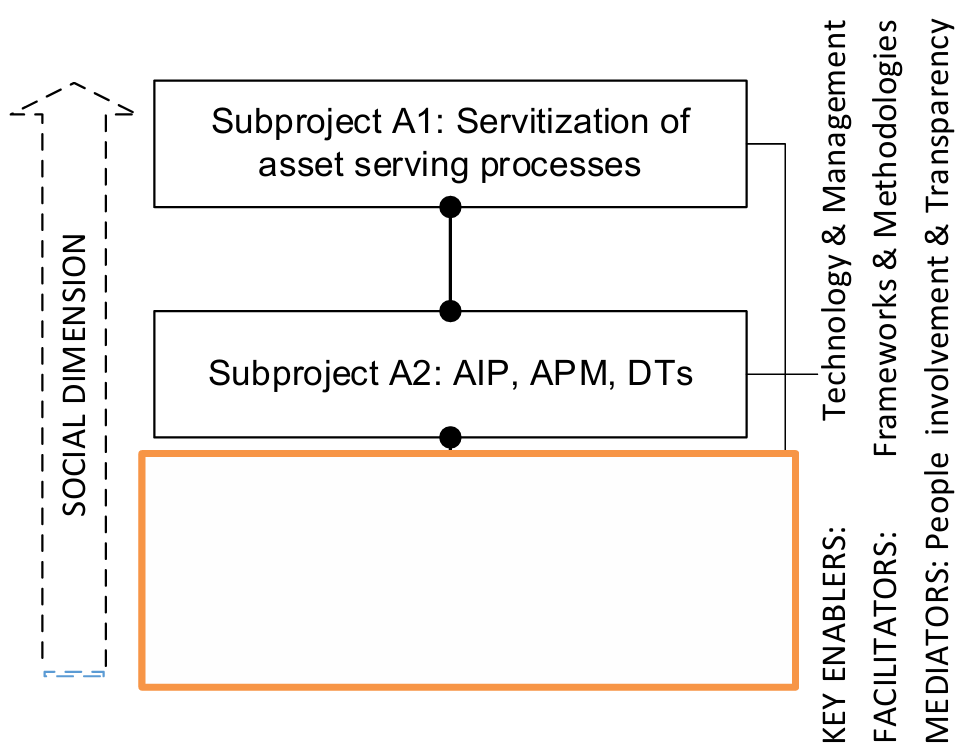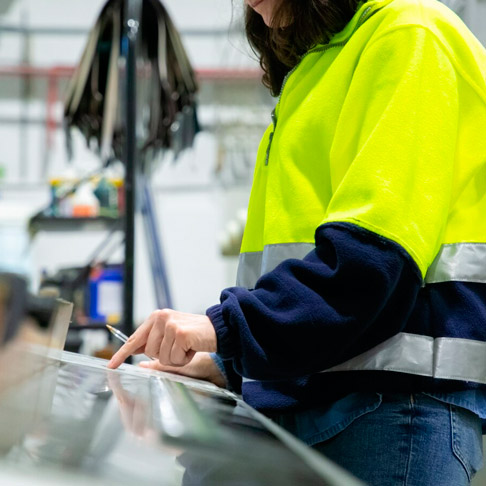
Digitalization as Key Enabler for Asset Management (DIGEST)
The DIGEST Project
The DIGEST project offers an engineering-centered perspective on assets by integrating their description, operating models, and data management. The project’s primary focus is on operations that can impact on the asset’s dynamic status. The goal is to dynamically include these activities in the decision-making process, with the aim of increasing value creation while also considering the effect on the asset’s status. Decisions on maintenance are crucial in this scenario. To extend the useful lives of production assets while keeping costs in mind, the DIGEST project must investigate tools for integrating service and production scheduling, considering factors such as loss-of-production cost, maintenance cost, and all associated opportunity costs.
To deliver the most effective forecast scenario, managers should prioritize various tasks or actions, decide whether to replace or repair items, and determine the appropriate timing by performing a «what-if» analysis of alternative scenarios. This requires a comprehensive strategy that utilizes a unique design, as well as reliability-based, and it considers the industrial system.
In other words, the DIGEST project proposes integrating advanced tools and methodologies within a framework that dynamically incorporates industrial quality solutions, production activities, and human-based aspects, which are the principles adopted by the EU under the concept Industry 5.0, while also considering the impact on critical business services such as Health and Education. We are convinced that digitalization can significantly reduce costs and increase transparency, allowing for the development of more complex yet efficient business models.

To better understand how these various elements come together, here’s an overview of the DIGEST project, highlighting its key subprojects and characteristics. This visual representation illustrates how the components of the project are interconnected and how they collectively contribute to the overall strategy.

Objectives
Su título va aquí
Technical objetives
T01.- To establish a reference framework for digitalization as a value provider for assets, throughout components and tools such as digital twins, models, scenarios, and probabilistic behaviours.
T02.- To develop methodologies for the management of the components (digital twin, data management, model management, agent management) in a flexible context such as microservices.
T03.– Verify and validate statistical learning models adjusted to empirical data obtained from assets and operating processes.
Social objectives
S01.- Propose strategies that facilitate the integration of proposals to represent assets and their behaviours on different platforms and in a nonintrusive way with preexisting technologies in organisations.
S02.- To explore servitization strategies based on the results and findings related to the other objectives, according to the proposed framework, considering the required transparency levels. It will specifically look at the integrated maintenance and operation schemas, which is a clear bottleneck to overcome.
S03.- To integrate the human element into the digital representation of the process and study the interactions with assets, considering the social dimension (I5.0) and to investigate intrinsic variability in processes that are currently not identified.
Ecological objectives
E01.- To integrate environmental factors and energy-related aspects in the description of the processes linked to assets, making them aware of such elements. (All Subprojects, led by A2).
E02.– To integrate the principles of circular economy in the semantic description of assets, since they can influence maintenance policies, or asset usage strategies according to the AIP.


Details

Project start date: September 1st, 2023
Proyect duration: 4 years
Funded by: The project funding will take the form of a grant and a repayable advance from the European Regional Development Fund (ERDF). Project funding may be provided by the European Union through the ERDF, under the Multi-Regional Operational Program of Spain ERDF 2021-2027.
The total grant for the whole project is €338500. In addition the project was awarded with one Training Contract for Research Staff Associated with a National Research Plan Project.

